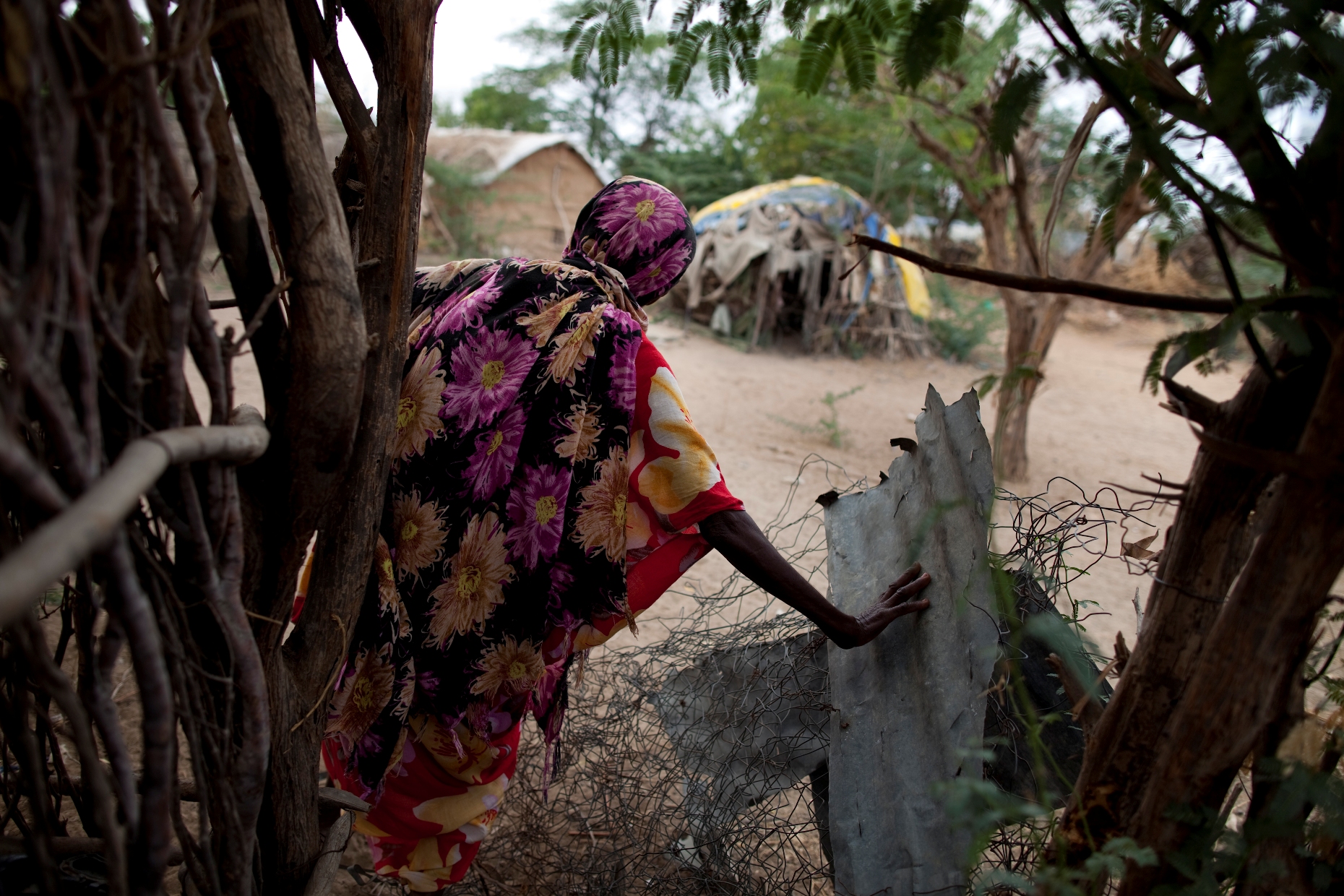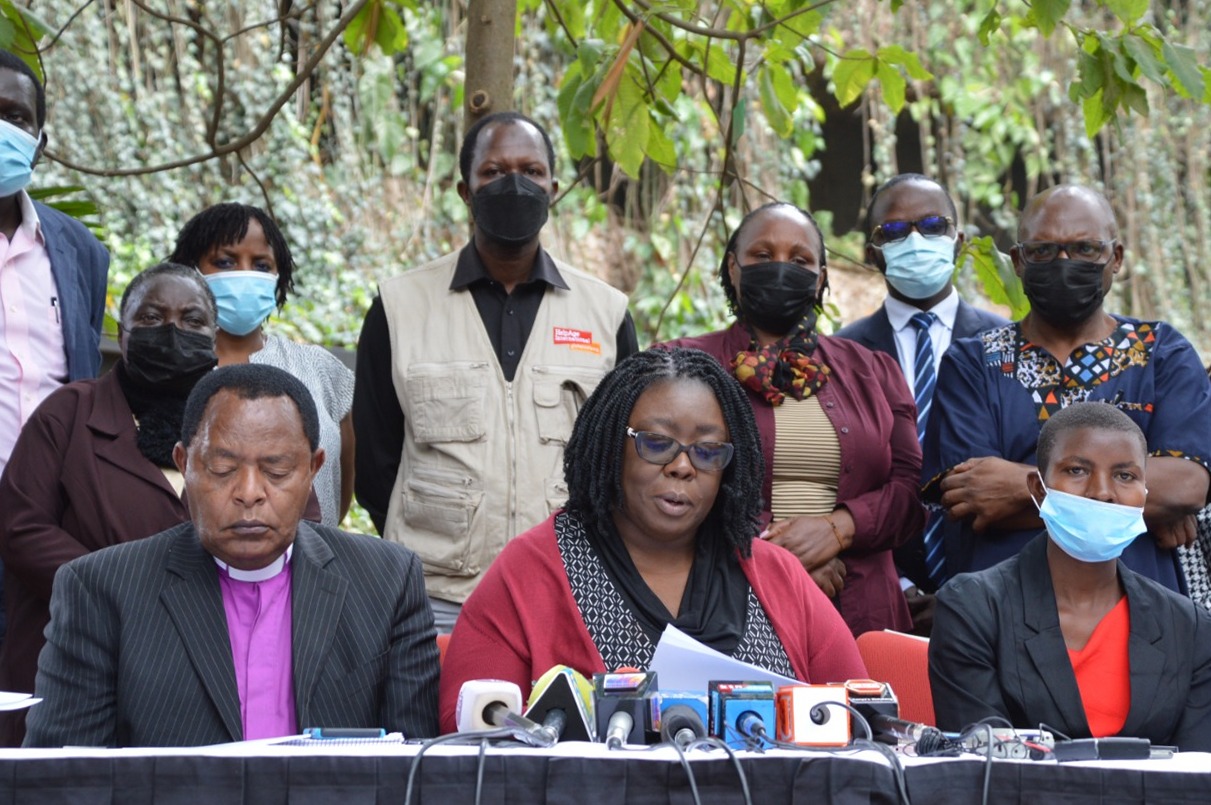Four older women accused of being “witches” were lynched and murdered by members of their community in Kenya this week.
Allegations of witchcraft are on the increase in certain parts of Kenya. Such accusations can lead to barbaric acts of violence against older women – and sometimes men – often from members of their own family seeking to profit from their death.
In response to this week’s horrific killings, HelpAge International joined forces with 21 other organisations to call for the government to take immediate action to stop this barbaric practice and to deliver justice for the four murdered women.
Carole Ageng’o, HelpAge International’s regional representative in Africa said: This shocking practice is coloured by deeply ageist attitudes and motivated by greed. It is leading to a brutal death of too many older women – and even men – at the hands of their own families while no action is being taken against the perpetrators. This must stop.
“The authorities in Kenya must investigate these crimes and put in place measures to deter any future false accusations of witchcraft, making sure that older women and men can lead safe and secure lives.”
The full statement issued by the consortium of 22 organisations can be read here.

Benjamin Schilling / HelpAge International
On 17 October 2021, four older women from Mokona Village, Marani Ward in Kisii County were lynched on allegations of being witches. This is an abominable, discriminatory, unjust, dehumanizing, and deeply oppressive, trend that largely targets old and poor widows in Gusiiland.
While some old men have been victims of the horrid practice of witch burning in Gusiiland, women particularly poor, old widows are predominantly targeted. We must work together to stop this grotesque practice with a fierce sense of urgency. As a consortium of the 22 organisations listed below, we have united to call for an urgent change in response to these events.
The incident
The four women (Sindege Mayaka, Jemima Nyang ate Mironga, Sindege Nyakwara Masaku and Agnes Moraa Ototo) were suspected of having bewitched a form four student. According to police records, the student was unable to speak, prompting the villagers to initiate a process of identifying the alleged witches.
One of the witch burning victims had buried her husband two weeks before she met her brute death at the hands of by a rowdy, angry, and blood-thirsty mob that had labelled her a witch.
Witchcraft accusations and the resulting extreme violence meted on women suspected of being witches are on the increase in Gusiiland, and other parts of the country including Kilifi. This barbaric behaviour is usually sanctioned by some members of the communities where these acts are rampant. There are many reports of very close family members (including women) colluding to instigate this violence, harass, intimidate, maim, and even murder widows by hacking them to pieces and/or burning them alive.
Harmful consequences
The lynching of older women, and in some cases older men has led to social exclusion, victimization, and a repeat of heinous acts against the surviving families. The practice of witch burning has led to slow economic growth that is characterized by unproductive/illegal behaviours such as destruction of property, forced migration from rural to urban areas, homelessness, poverty, and conflicts among community members. The isolation of older men and women leads to untold suffering to their families and adds to this non-productivity.
In many cases, when widows with children especially minors are murdered, their husbands family members disinherit them by grabbing their parents land and other resources. These children often end up on the streets where they are extremely vulnerable to human rights violations of all kinds, such as human trafficking, child labour, physical, emotional, sexual, other forms of violence, and even murder.
What lies beneath
Statistics indicate that about six people face violence every month on suspicion of being witches in Gusiiland. An analysis of most of the witch burning cases shows a linkage between these horrendous acts and resource conflicts in the social, political, and economic arena. Most of the victims are widows whose accusers are relatives from the families of their deceased husbands. Witchcraft accusations against widows are traceable to land scarcity, greed, selfishness, and misogyny. Even where there was no conflict in the lifetime of the husbands, the accusations arise immediately upon the death of their husbands, with families ganging up against the widows and accusing them of witchcraft, emboldened by the community attitude and social stigma associated with witchcraft.
Once these widows are labelled and isolated, they become easy prey. As soon as the witchcraft accusation is dangled at them, it is only a matter of time before a victim of their witchcraft is identified and they are lynched. Consequences of lynching include the stigmatization of the family of the witch and forcible removal of the witches families from the area only for the accusers to appropriate themselves of the land.
These killings which target widows are also a symptom of deeper patriarchal beliefs by some people within the Gusii community that girls and women should not inherent nor own land and other property. The broader question of girls and women s right to inherit land and other property from their parents cannot be ignored within the context of widow killings. While most women in Gusiiland gain access to land through marriage, some community members who believe that women do not deserve to own property resort to dispossessing them by killing them.
Older people are also susceptible to accusations of witchcraft in instances where they suffer from dementia, Alzheimer s, or Parkinson s diseases.
Moreover, it is worrying that those responsible for such illegal and heinous acts go unpunished. This emboldens would be perpetrators and encourages them to abuse, violate and kill old people in the most inhumane ways imaginable with impunity.

Carole Agengo, Regional Representative, Africa, with a consortium of human rights organisations at a press conference. Brian Javis Otwal / HelpAge International
Call to action
HelpAge in consortium with other 21 organisations issued a call to local authorities and the Government of Kenya to ensure a thorough and speedy investigation into the killing of the four women, openly speak out against this practice, take steps to ensure the safety of older people and the protection of their property.
We firmly urge the Government of Kenya to ratify with speed and implement the AU Protocol to the African Charter on Human and Peoples Rights on the Rights of Older Persons in Africa that clearly provides for the protection of the property, land and inheritance rights of older women. This Protocol in Article 8 prohibits abuse from harmful traditional practices and specifically calls on governments in Article 8(2) to take measures to eliminate harmful traditional practices including witchcraft accusations which affect the welfare, health, life, and dignity of older people, particularly older women.
Signed by:
- Kenya Human Rights Commission (KHRC)
- Open Society Initiative for East Africa (OSIEA)
- HelpAge International
- The Uongozi wa Utu Initiative (TUWUI)
- Tabaka Ward Uongozi wa Utu CBO
- Federation of Women Groups
- United Nations Entity for Gender Equality and the Empowerment of Women (UN Women)
- Interreligious Council of Kenya (IRCK)
- Federation of Female Lawyers (FIDA)
- Coalition on Violence Against Women (COVAW)
- Ageing Concern Foundation (ACF)
- Kenyan Aged people Require Information, Knowledge & Advancement (KARIKA)
- Kenya Diaspora Alliance-USA
- Mwanyagitinge USA
- Kibera Day Care Center for the Elderly (KDCCE)
- Women for Dementia Africa
- Coalition for Grassroots Women Rights Defenders
- Young Women s Leadership Institute (YWLI)
- Feminists for Peace Rights and Justice
- Echo Network Africa (ENAFRICA)
- Community Advocacy and Awareness Trust (CRAWN)
- Kibera Women for Peace and Fairness
